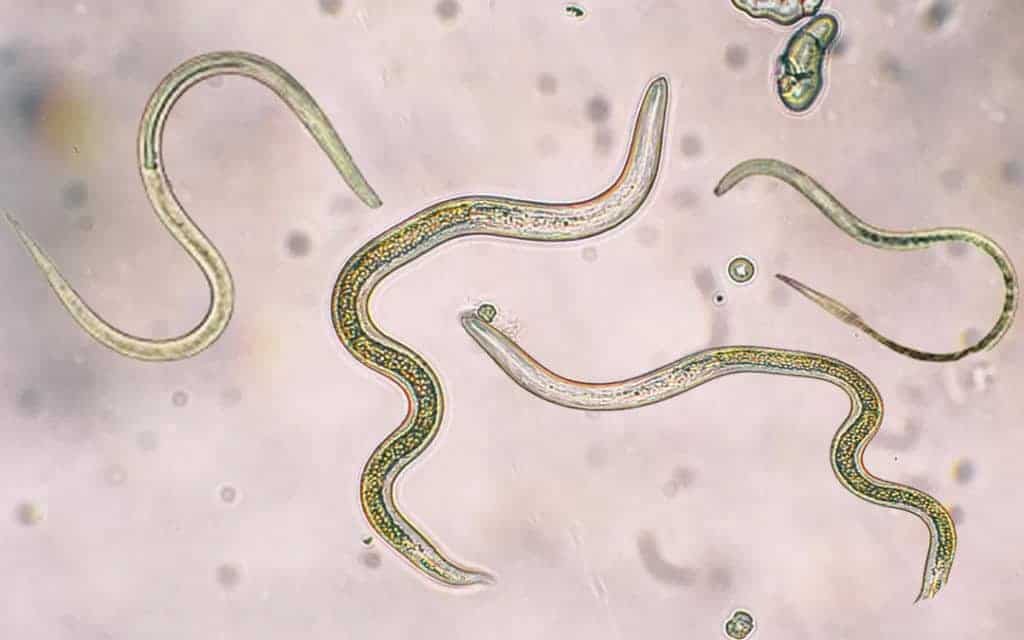
Worm count tests are absolutely worthwhile for tortoises, especially prior to, and following, hibernation. Parasitic infection in tortoises can be fatal, so anything that helps determine if your tortoise has worms is important. A course of treatment can be determined based on which parasites are present, and in what quantity.
All tortoise owners care about their tortoises and want to make sure that they are healthy and happy. But some issues are not that easy to prevent, and you might have to provide treatments that will make sure your reptile doesn’t suffer. Parasites or worms are a common issue that tortoises deal with. While some types of parasites are common, others are more dangerous and a source of concern.
There is a commonly held belief among tortoise owners that tortoises should be wormed after waking up from hibernation, and again before going back into hibernation.
I believe this is a sensible approach to take.
Worm count tests are the best way to determine if any treatment is needed, as they can help you find out the worm egg count of your pet. But are they worthwhile? Let’s find out!
What Are Tortoise Worm Count Tests?
Tortoise worm count kits provide a way to collect a sample from your tortoise’s droppings and mail it to find out the number of parasitic worm eggs present (if present at all). The tests can be purchased from the Internet, and when you receive the kit, you’ll find it comes complete with detailed instructions on how to collect the sample, as well as how and where to mail it.
Although many people think that worm count tests look for actual worms, this is not strictly true. They look for the microscopic eggs the worms will ultimately hatch from, in the reptile’s gut. Usually, the results will be expressed in an “EPG” figure form on reports, which means “eggs per gram”.
Armed with this information, you and/or your vet will be able to learn an approximate number of mature worms in the gut of your tortoise.
If, for example, the EPG shows 10,000, then that is a very high count, that is not only harmful to the tortoise but may even end up being deadly.
How Is the Worm Count Discovered?
In order to find out the worm count of a tortoise, the feces are examined under a microscope. Therefore, they have to go through a wet preparation that smears them on a microscope slide. This will immediately show the scientist analysing the sample how many worm eggs reside in your tortoise’s gut.
Sometimes, fecal flotation is used as well. This involves mixing a concentrated solution with some fecal material. As a result, the worm eggs will come to the surface, after which the fluid from the top is examined.
Both are considered to be reliable methods, but there are also cases when there’s a need for further testing, though, so a definitive egg count can be discovered.
Nine times out of ten, you can be sure that a standard test will give you a good indication of what’s going on in your tortoise’s gut,
How Do You Collect a Fecal Sample?
Collecting a fecal sample is not that difficult. In fact, you only need a very small sample of droppings from your pet to perform the test.
Typically the kit contains a small, clear container that also has a screw lid. You’ll need to label this with your name, and a description of your tortoise.
Next you’ll take a small piece of wood, preferably a flat spatula or ‘popsicle’ stick, and scoop up fresh fecal matter from the reptile.
You then place it inside the container, and then put the screw lid on, securing it. This way, it can be taken to a vet laboratory.
The samples you collect can either be sent off by post, or taken directly to a vet, after which the results will come in.
If your sample has been provided to your vet, you will be able to talk through the results with your vet and come to a conclusion regarding how severe the situation is and what treatment should be provided.
Depending on the provider, mail order test results may require that you make an appointment with your vet to discuss the results, as they won’t have been involved with the process up to this point.
How Much Does a Worm Count Test Cost?
Worm count tests may have different prices depending on the type of kit. The price is usually around $20 when it comes to lungworm screen kits or worm egg count kits. If you want a combined one, though, the price may be higher.
Are Tortoise Worm Count Tests Worthwhile?
Tortoise worm count tests are definitely worthwhile if you care about your tortoise. In fact, these tests should be performed two times annually as a matter of course.
In general, it is common for tortoises to have a low-level worm issue. But when things get worse and the worm count increases, it may cause problems. The pet may start losing weight as a result of a reduction in nutrient absorption. Diarrhea may be one of the most notable symptoms of this.
Tortoise worm count tests will allow you and your vet to see whether you need to give your pet some form of treatment. Treatments will help kill the worms and restore the tortoise to full health.
Tortoise worm count tests can ensure the reptile doesn’t suffer and that the worm issue is not able to progress into a potentially fatal problem.
Worm count tests will also reveal whether a worm problem has been able to persist or not. If the next time you perform a test you still find a high worm count despite a previous course of treatment, it means you will have to look for a more effective way to treat the tortoise.
Where Can You Send a Stool Sample for Analysis?
If you live in the UK, you can try out Wormcount.com Ltd. This is an independent fecal worm count laboratory that’s been in the business of diagnostic services for pets for decades.
Because of that, they offer tests for all types of pets, including tortoises. All you have to do is to order one of their test kits at home by selecting a screen on their website. Then, you collect a fecal sample from your pet and send it to them for laboratory testing.
Afterward, you will receive the testing results through email. Registered Animal Medicines Advisor aftercare is also offered for free when necessary.
Perfect Pet Products in the US also has a fecal worm test for pets, including tortoises. With this kit, all you have to do is take the sample, add stamps and then mail it to their address.
Upon receiving the results you’ll be recommended a suitable product to treat the issue, or if necessary, further veterinary assistance.
Final Thoughts
It is important to test the worm count of your tortoise twice every year because it can help detect high worm counts and prompt a treatment that will get rid of them. This way, you ensure that your tortoise doesn’t deal with health issues and you may even prevent a tragic outcome.
So, make sure you perform these tests at the suggested times, either before and after hibernation, or every 6 months if your tortoise does not hibernate.


